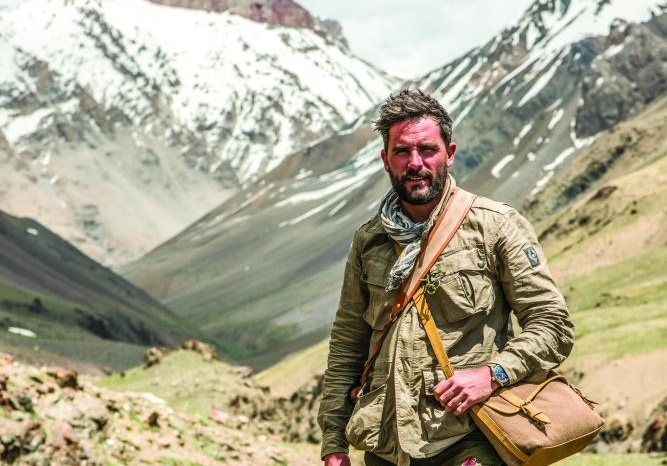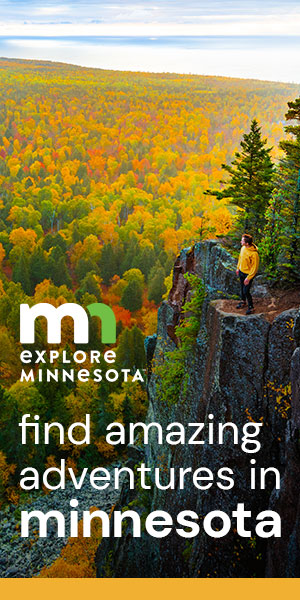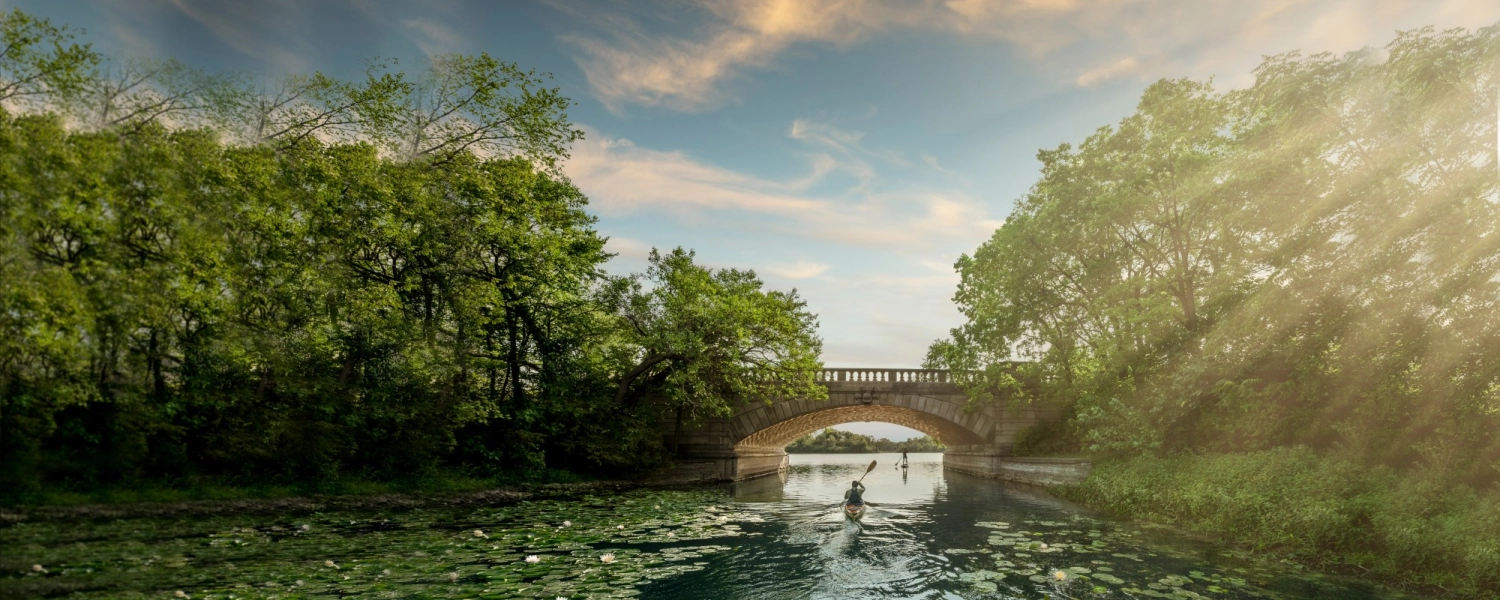- Details
- Written by: Mike Walker
Where did the adventuring start?
Growing up in Stoke on Trent I spent most of my childhood messing about in fields getting in trouble with farmers. I'd always dreamed of being an explorer though, inspired by the adventures of Livingstone and Shackleton and others. I guess I never grew up!
Did you have any other boyhood heroes who inspired you to become an adventurer?
David Attenborough has always been an inspiration and I used to idolize him as a child. It was a great thrill to get a letter from him last year.
Was joining the army all about the travel? Living the adventure?
It wasn't as well planned out as that. I wasn't the first Levison in my family to serve but I did know from my early teens that I wanted to join up and see where it took me. The life I did experience in the Army did help me realise that I wanted to be a writer and traveller.
Why did you leave? And haven't you joined up again anyway?
After tours in Afghanistan I left to find new, more creative challenges. That's right - I've actually been in the reserves since leaving, working a few days a year in the 77 Brigade.
Does your time in the Army make you feel vulnerable travelling without a gun?
It's the opposite really. I'd never travel with a gun. Carrying one makes you a target if anything and puts people's defences up straight away - no one is going to invite you into their house if you've got a gun. You can't carry one unless you're prepared to use it.
Why do you travel on foot?
Walking is the ultimate way to travel; the most intimate way to react with the people and landscapes that you're travelling though. It makes you accessible to everyone and everyone accessible to you. As the slowest and most basic way from A to B it gives you the maximum opportunities to interact and explore. People respect you more too, as they see you as a fellow human being.
Which of your big expeditions was the hardest - walking the Nile or walking across the Himalayas?
Physically the Himalayas was tough as it was over varied terrain but as it came second I was better prepared mentally. Walking the Nile was flatter but the heat was terrible and it was a tougher mental challenge.
Which was the more rewarding journey?
It's always great to be the first, although that wasn't my initial motivation for planning the Nile expedition. But in terms of travelling experience - which is always my primary motivation for what I do - both journeys had an equally incredible amount of cultural diversity and colour.
How important was being the first to do something - as you were with walking the Nile?
Being first matters in terms of exposure but I've never been out to set records, or go further or faster than anyone has done before. There aren't any 'firsts' left anyway.
Why has no one else succeeded in walking the Nile before?
Prior to the independence of South Sudan in 2011, the lack of security there simply made it too dangerous in recent times. Going further back, it was malaria that made attempting the walk so risky. Now, there is relative stability in Sudan, and modern anti-malarials for protection.
Did you ever consider doing the journey self-supported?
To be honest, self-sufficiency is a load of bollocks. I spent 10 years in the army carrying huge packs, so I've got nothing to prove to myself on the physical front but it takes the fun out of the journey. I've got nothing against hiring a yak or mule to carry my gear.
How about on your own?
I can't think of anything worse than a long solitary expedition to somewhere like the North Pole. For me every journey is an excuse to meet people and find out how they interact with the place they live in.
Is being away from home as much as you are difficult for 'normal' life?
It is pretty hectic, it's true, with typically six months at home then six months away. But this is what I've being doing for the past 15 years - I was doing expeditions before the TV success, and I'd still be doing them if the TV contracts disappeared.
With the Nile walk taking nine months and the Himalayan trip taking six months it must be difficult to decide what to include in the TV episodes?
The camera crews only come out for a week or so at a time, but I film everything else myself, so there is a huge amount of footage. There's only so much that you can fit into five hours of screen time though, and I don't edit it all - although I do have some input into what the final shows look like.
You clearly enjoy writing about and photographing the adventures too?
I always have, even before the TV opportunities came along. I love the opportunity to document my version of events. So much gets edited down and sometimes out on TV.
Has your success surprised you?
I certainly never expected things to take off like this, and it's been great to get the TV, especially with the coverage of Channel 4. People can obviously relate easily to the concept of walking, rather than cycling or packrafting, for example. I think the authenticity of the journeys I'm taking on are easy to connect to.
There's obviously an element of danger to what you do. Is this part of the appeal?
It's true that there is often political unrest and physical hardship in many of the regions I travel through. There have been some dangerous close shaves and getting through difficult situations is very much part of the journeys that I do, but the 'survival' is not the main focus. For me it's all about the journey.
Can you see yourself ever settling down?
Of course. It's very exciting right now but it probably won't last forever. One day I'd like to settle down and have kids. Just not yet...
When you do finally 'settle down', is there one thing that you really won't miss?
Without hesitation - eating bush rat. Altogether far too ratty...
LEVISON WOOD TIIMELINE
Born 1982, Forsbrook, Stoke-on-Trent
Educated: Painsley Catholic College, Cheadle, then Nottingham University
2000
Hitchhikes to India at the age of 21, before studying History at Nottingham University, where he joins Officer Training Corps.
2006
Takes up commission in the Parachute Regiment serving in Afghanistan's Helmand, Kandahar and Zabul provinces, reaching the rank of captain.
2010
Leaves army and starts career in travel and expedition journalism and photography, also co-founding the expedition company Secret Compass.
2011
After travel and exploration in over 80 countries, Wood is made a Fellow of the Royal Geographical Society.
2012
Leads Secret Compass' 370km first trek across the entire width of Madagascar, including climbing its 2,876m higest peak, Mt Maromokotra.
2013
Sets off from the source of the Nile in the forested highlands of Rwanda on expedition to walk the 4,250-mile length of the river at the age of 31.
2014
Nine months and seven countries later, Wood reaches the Mediterranean Sea and becomes the first person to ever successfully walk the length of the Nile. A series documenting his journey was shown on Channel 4 in January 2015.
2015
Walks 1,700 miles across the length of the Himalayan mountain range from Afghanistan in the west to Bhutan in the east, again filming for a Channel 4 series and writing a book about the experience.
To find out what Levison Wood is up to next, see levisonwood.com
Walking the Nile (Simon & Schuster, £18.99)
Walking the Himalayas (Hodder & Stoughton, £20)




